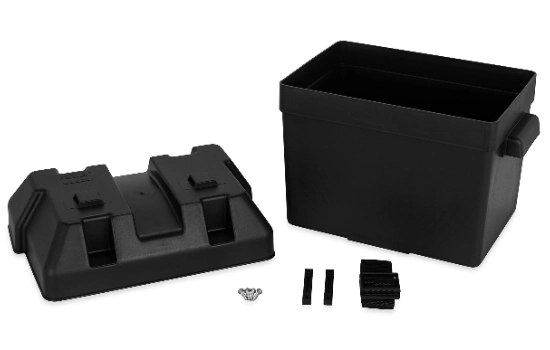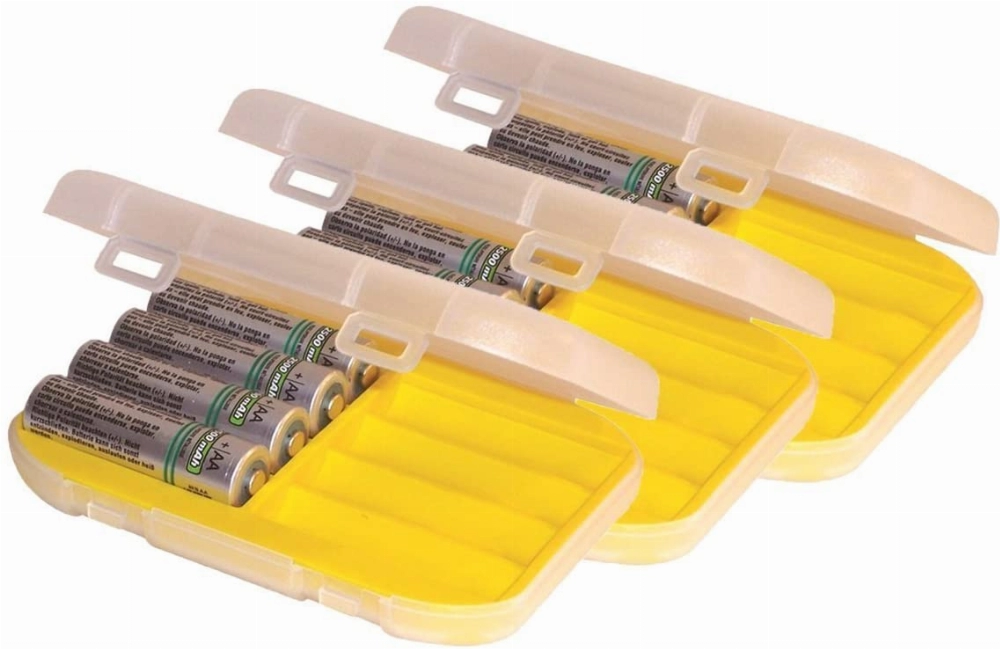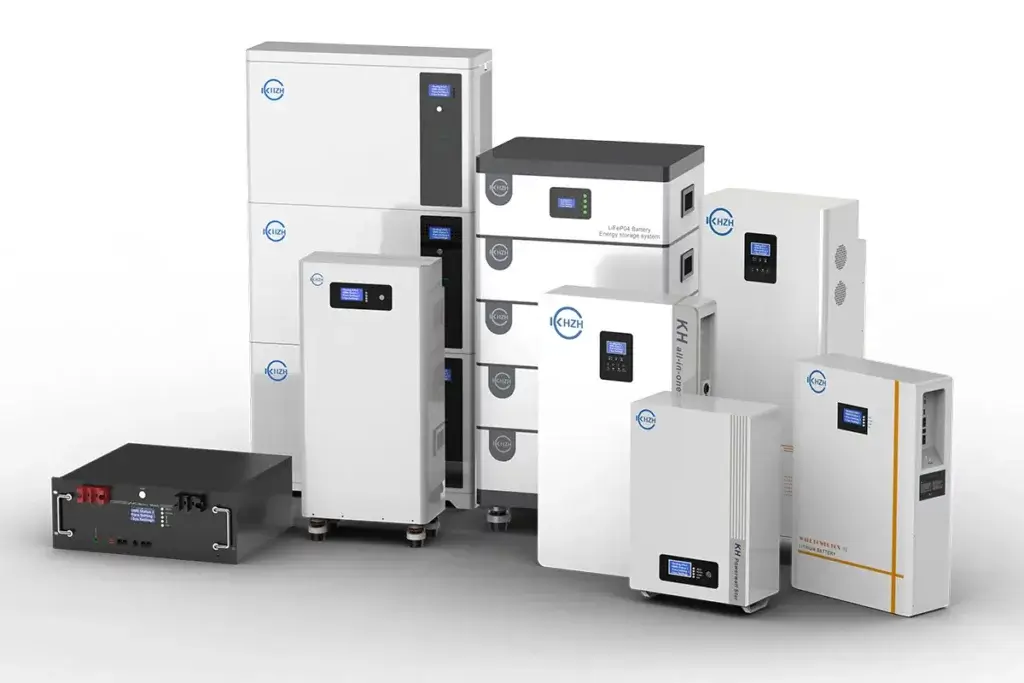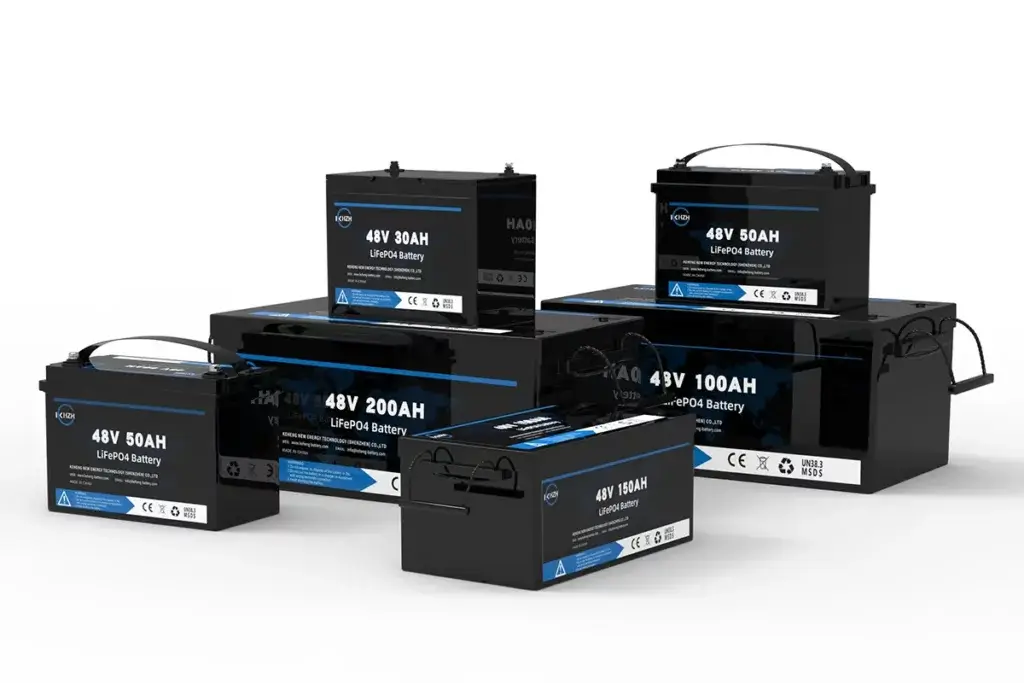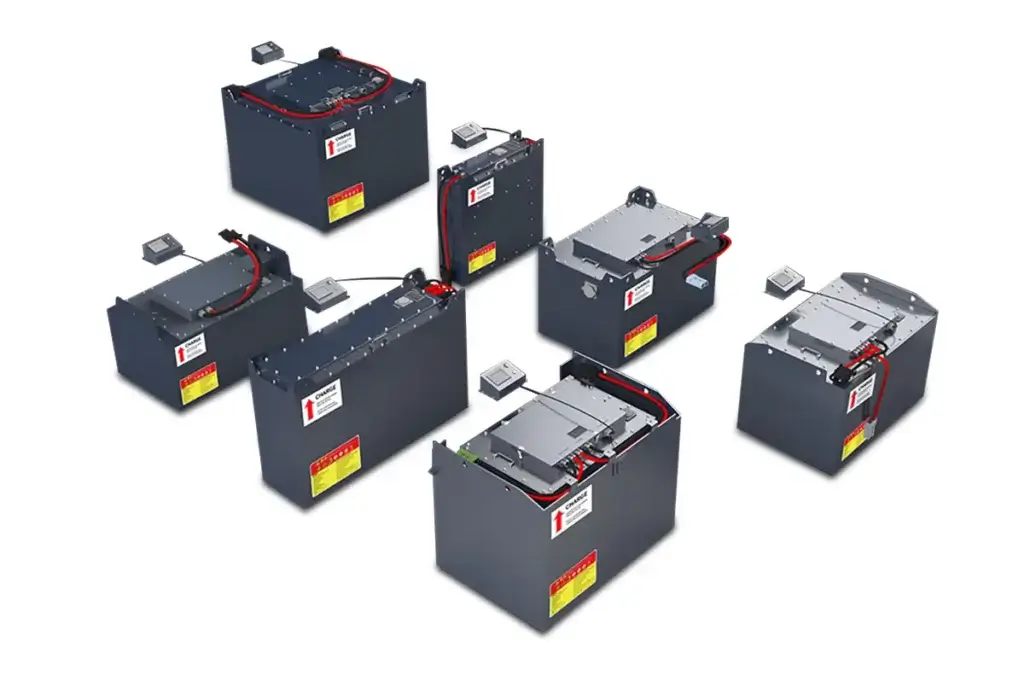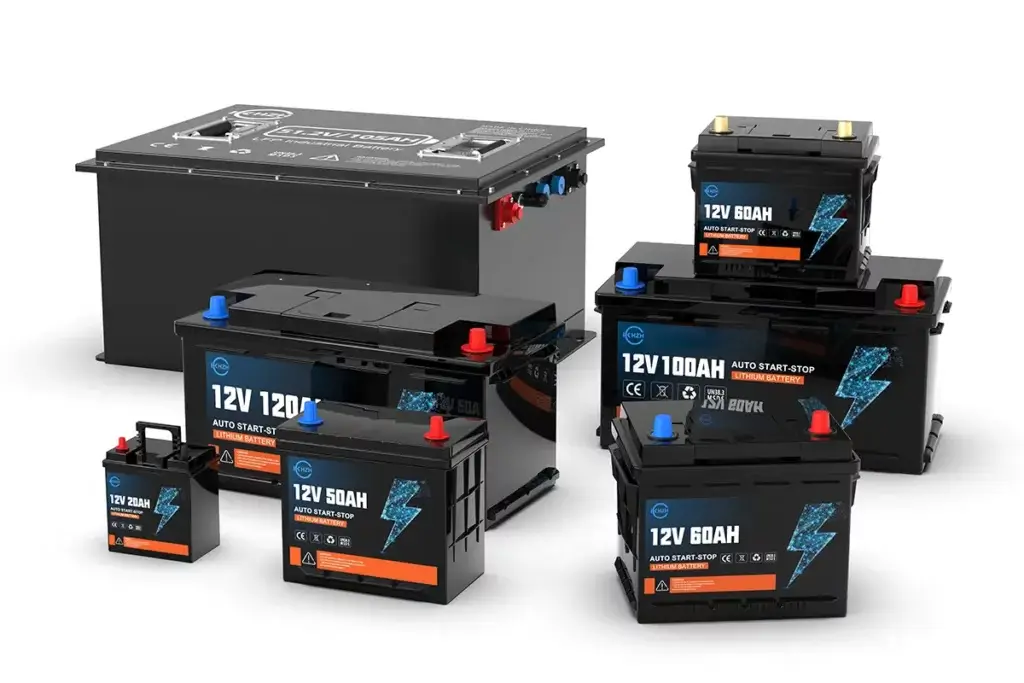In today’s technology-driven world, batteries power everything from smartphones to cameras. Keeping your batteries organized, safe, and readily available is crucial. That’s where battery storage cases are essential. These essential accessories protect your batteries from damage, extend their lifespan, and keep them neatly arranged. In this guide, we’ll explore everything you need to know about battery storage cases, from their benefits to the best types available.
What is a Battery Storage Case?
A battery storage case is a specially designed container that safely holds batteries, preventing physical damage and potential hazards. These cases are available in various shapes and sizes to accommodate different battery types, including AA, AAA, 18650, and even larger lithium-ion batteries used in power tools and electric vehicles. They are made from durable materials that protect the batteries from environmental factors and accidental short circuits.
Part 2: Why Do You Need a Battery Storage Case?
1. Safety
Safety is the primary reason to use a battery storage case. Lithium-ion batteries, in particular, can be hazardous if mishandled. Proper storage prevents accidental short circuits, which can lead to dangerous fires or explosions. Additionally, cases protect batteries from impacts and other physical damage that could compromise their integrity.
2. Organization
Tired of rummaging through cluttered drawers to find the right battery? Battery storage cases ensure that each type has a designated place, making it easy to find and access when needed. This level of organization is especially useful for professionals and hobbyists who rely on multiple battery types.
3. Extended Battery Life
Batteries degrade over time, but proper storage can help extend their lifespan. Exposure to extreme temperatures, humidity, and mechanical stress can reduce battery performance. A well-designed storage case protects batteries from these harmful elements, keeping them in optimal condition for longer.
Part 3: Types of Battery Storage Cases
1. Plastic Battery Cases
Plastic battery cases are the most common and cost-effective option. They are lightweight, durable, and come in various sizes to accommodate different battery types. These cases typically feature secure compartments that prevent batteries from moving around and getting damaged.
2. Metal Battery Cases
For enhanced durability and protection, metal battery cases are an excellent choice. Made from materials like aluminum or steel, they offer superior resistance to impacts and extreme temperatures. They are ideal for outdoor adventurers and professionals who work in harsh conditions.
3. Waterproof Battery Cases
If you need protection from moisture and water, waterproof battery cases are ideal. These cases feature airtight seals that effectively prevent water intrusion, making them ideal for outdoor activities like boating and camping where batteries may be exposed to wet conditions.
4. Fireproof Battery Cases
For maximum safety, especially when storing lithium-ion batteries, essential fireproof battery cases. Made from fire-resistant materials, these cases help contain potential fires caused by battery malfunctions. They are an excellent choice for home storage or workplaces where fire hazards are a concern.
Part 4: Features to Consider When Choosing a Battery Storage Case
When selecting a battery storage case, consider the following key features to ensure optimal protection and usability:
### 1. Size and Capacity
Choose a case with enough compartments to accommodate all your batteries, keeping each type properly separated and organized.
2. Material
The durability and protective qualities of the material are crucial. While plastic cases are suitable for everyday use, metal, waterproof, and fireproof cases offer added security in demanding environments.
3. Compartments and Dividers
A good storage case should have individual compartments or dividers to prevent batteries from coming into contact with each other. This minimizes the risk of short circuits or physical damage.
4. Portability
If you frequently carry your batteries with you, choose a case that is compact, lightweight, and easy to transport. Some models come with handles or straps for added convenience.
Conclusion
Battery storage cases are essential for maintaining battery safety, organization, and lifespan. Whether you need a basic plastic case for everyday use or a rugged fireproof and waterproof option for extreme conditions, there’s a perfect case to meet your needs. Invest in a high-quality storage case to keep your batteries safe and readily accessible. For more information on how lithium-ion batteries can be used in various conditions, check out our Your Ultimate Guide to Exploring 21700 Battery Technology.
Safe and Effective Battery Storage: Essential Tips
When it comes to storing batteries, safety and longevity should be your top priorities. Whether you have a collection of household batteries or specialized ones, proper storage is crucial for maintaining battery performance and ensuring safety. Here are recommendations for safely storing batteries and the best options available.
Key Considerations for Battery Storage
1. Battery Storage Box
A battery storage box is essential for keeping your batteries organized and protected. These boxes come in various sizes and materials, offering features like secure compartments, moisture resistance, and impact protection. The right storage box can prevent batteries from coming into contact with other objects that could cause short circuits or leaks.
2. Portable and Lightweight Options
For those who are often on the go, lightweight and portable battery storage options are crucial. Many battery boxes are designed to be compact and easy to transport, with handles or straps for convenient carrying. These boxes are ideal for individuals who need to safely store batteries while traveling or carrying them for work.
3. Safety Features
For added peace of mind, choose battery boxes with built-in safety features. Some boxes offer locking mechanisms or come with childproof designs, making them a great option for families with children. These features ensure that your batteries are secure and out of reach, reducing the risk of accidents.
Best Practices for Storing Batteries
1. Store Batteries in a Cool, Dry Place
Always store batteries in a cool and dry environment. Extreme temperatures or high humidity can damage battery cells, shortening their lifespan and potentially causing leaks. A stable temperature and low humidity are key to ensuring that your batteries remain functional for longer.
2. Avoid Storing Batteries in Metal Containers
Unless specifically designed for battery storage, avoid using metal containers. Metal can conduct electricity and cause short circuits if batteries come into contact with each other. Use plastic or other non-conductive materials for safer storage.
3. Store Batteries in Their Original Packaging
Whenever possible, store batteries in their original packaging. This provides an extra layer of protection and helps keep them organized. If the original packaging is no longer available, consider using plastic cases specifically designed to hold batteries.
4. Regularly Inspect Stored Batteries
Regularly inspect stored batteries for damage, corrosion, or leakage. Batteries that show signs of leakage or damage should be disposed of safely, as they can pose a safety hazard.
5. Keep Batteries Away from Flammable Materials
Batteries, especially lithium-ion batteries, can pose a fire risk if damaged or mishandled. Keep batteries away from any flammable materials to reduce the risk of fire. This is especially important when storing rechargeable or high-power batteries.
Top Battery Storage Cases on the Market
1. Storacell SlimLine Battery Holder
The Storacell SlimLine Battery Holder is an affordable, compact storage solution that can hold up to 4 AA or AAA batteries. Made from durable plastic, this holder is available in various bright colors, making it easy to find in a drawer or bag. Its slim design makes it perfect for everyday use.
2. Pelican 1020 Micro Case
If you need extra protection for your batteries, the Pelican 1020 Micro Case is an excellent choice. This case is waterproof, crushproof, and dustproof, keeping your batteries safe even in the harshest conditions. It’s ideal for outdoor enthusiasts and those who need to transport batteries securely.
3. Aenllosi Hard Carrying Case
The Aenllosi Hard Carrying Case offers ample storage space for various batteries and accessories. With a hard shell exterior, multiple compartments, and a mesh pocket, this case ensures everything stays organized and secure. It also features a convenient carrying handle for easy portability.
4. Lipo Safe Bag
For those using lithium-ion batteries, a Lipo Safe Bag is a must-have. This fireproof and explosion-proof bag is designed to contain any fires that may result from battery failure, providing an extra layer of safety when storing and transporting LiPo batteries.
5. Eneloop Battery Storage Case
The Eneloop Battery Storage Case is perfect for rechargeable batteries. It can hold up to 8 AA or AAA batteries and is made from durable plastic. Its compact and lightweight design ensures that your rechargeable batteries stay organized and secure.
Battery Storage: Case vs. Holders
What’s the Difference?
The terms “battery case” and “battery holder” are often used interchangeably but refer to slightly different things. A battery case typically refers to a storage container used to organize and protect batteries, while a battery holder refers to the component that houses the battery itself. The former is used for storing batteries, whereas the latter is a component of the battery itself. Understanding the difference is important when choosing a storage solution to ensure proper care.
Frequently Asked Questions
Can battery storage boxes prevent battery leakage?
Battery storage boxes can help contain and minimize the impact of battery leakage by containing the leak within the box. However, they cannot prevent leakage from occurring. It’s important to regularly inspect your stored batteries for any signs of leakage.
Is it safe to store batteries in the refrigerator?
It’s generally not recommended to store batteries in the refrigerator. The humidity can cause condensation, leading to rust or corrosion. A cool, dry environment at room temperature is more suitable for battery storage.
Can I store different types of batteries in the same box?
Yes, but it’s important to use a box with separate compartments to keep different battery types segregated. This prevents them from coming into contact with each other, which can potentially lead to damage or short circuits.
Are metal battery storage boxes better than plastic ones?
Metal boxes offer better protection against physical impact, but they can conduct electricity and cause short circuits if batteries touch. Therefore, plastic boxes are generally a safer option for battery storage, especially if they provide separate compartments.
By following these storage guidelines and investing in reliable battery storage boxes, you can help prolong the life of your batteries and ensure safety in your home or workplace.
Xtreme Temperatures and Durable Cases: Choosing the Right Battery Enclosure
Metal enclosures offer superior durability and resistance to extreme temperatures, making them ideal for harsh environments. However, plastic enclosures are lightweight and more affordable, making them a more economical choice for everyday use. The final decision depends on your specific needs and usage scenarios.
